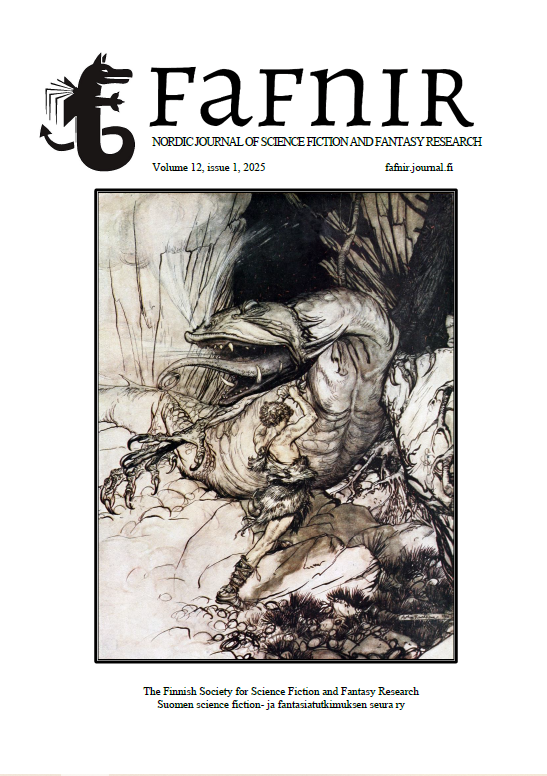“Attuned to Loss”
Rhetoric of Solastalgia in Richard Powers’ Bewilderment and Emmi Itäranta’s The Moonday Letters
Keywords:
Anthropocene fiction, Emmi Itäranta, Richard Powers, solastalgia in literature, rhetorical theory of narrativeAbstract
This article analyzes two contemporary novels that reflect on the devastation of the Earth: Bewilderment by American author Richard Powers (2021) and The Moonday Letters (2020) by Finnish author Emmi Itäranta, arguing that both novels invite readers to engage with solastalgia – a distress caused by witnessing environmental changes. The evocation of solastalgia (as an environmentally-attuning readerly affect) is discussed by employing James Phelan’s rhetorical theory of narrative, particularly his and Matthew Clark’s model of three narrative components. Accounting for both content and form, the threefold analysis touches on the many similarities of the seemingly different novels: their Earth-centeredness, the theme of loss and how it is rescaled from personal to environmental, as well as storyworld-internal worldbuilding that repeatedly interrupts the progression of narratives. This reading contributes to discussions about the functioning and functions of fiction in the Anthropocene.
Downloads
Published
Issue
Section
License
Copyright (c) 2025 Radvilė Musteikytė

This work is licensed under a Creative Commons Attribution-NonCommercial 3.0 Unported License.
Content in Fafnir is licensed under Creative Commons Attribution-Non Commercial 3.0 Unported License (CC BY-NC 3.0).
Beginning in November 2019, authors retain full copyright without restrictions. By publishing with Fafnir, authors grant a non-exclusive license to Fafnir to distribute the publisher’s version of the work, and give Fafnir permission to grant reprint and/or translation requests in accordance with our open-access policy and our Creative Commons license.
Prior to November 2019, copyright for all published material is held by Fafnir, but authors have full permission to use their work as they wish (i.e., self-archiving, reprint requests, using for other projects, etc.).
In both cases, re-use or re-posting of material published in Fafnir must acknowledge original publication and include a link to the publisher version.


